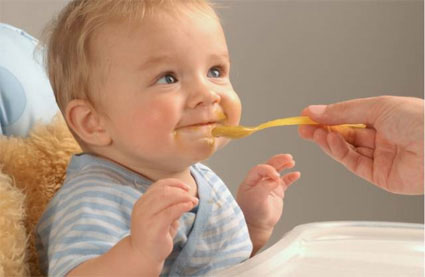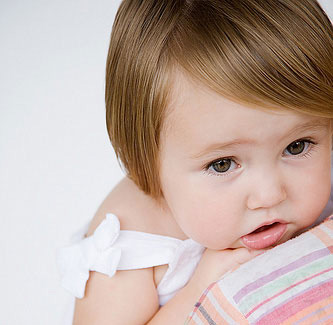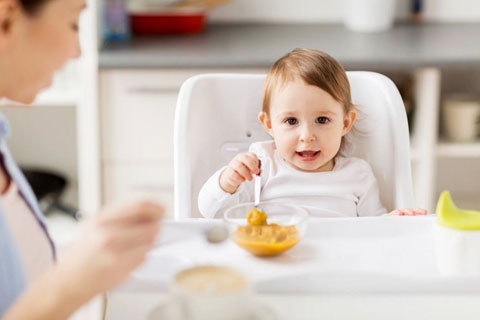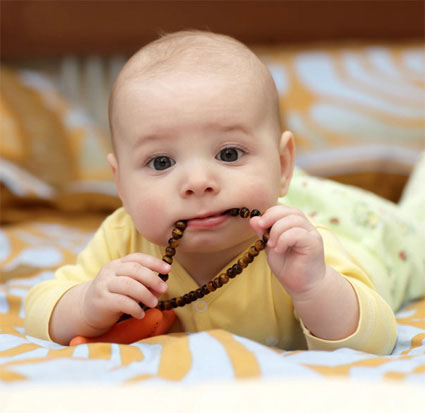Salt and sugar should not be added to the baby's food. Sugar can be added to some food preparations and salt intake should be limited. Vegetables have sufficient amount of salt or sodium in them so external addition of salts is not advised. Read the tips on baby's food.Excessive sugar and salt can be harmful for babies who are less than a year old. Therefore, it is a must to be aware of when it is safe to add these kinds of additives in their diet. On the other hand some natural ingredients that are safe can be added to enhance the taste of baby’s food. Let us take a look at concerns of parents related to adding sugar, salt and other additives in baby’s diet.
Should sugar be added to the baby's food?
Sugar and other artificial sweeteners should not be added to the child's diet unnecessarily (such as in juices). It may be added to food preparations like seera, but jaggery is definitely better than sugar, since jaggery is rich in iron.
When should salt be introduced?
Since the baby's system is not geared to handle too much salt intake or salt in the early months, it is better to keep the baby's salt intake to a minimum. Most vegetables already contain a sufficient amount of salt (or sodium), therefore additional salt is not required. As the rows, additional salt can be added so that when the child reaches one year of age, he is having regular food prepared for the whole family.
Should ghee, butter or oil be added to the child's food?
There are mixed opinions on this subject. Some doctors feel it is better to avoid all fatty additives like ghee, oil and butter until the child is at least 9 months old. Other doctors believe these substances are high in calories, calories that are essential for the baby's growth. Since the child can only eat a limited amount at a time, if ghee or butter has been added to his food, he gets a lot more calories. Ghee is preferred over butter because butter contains salt.
Which foods containing high amount of salt should be avoided?
Here is a list of foods containing high amount of salt. These foods should not be included in the diet of babies.
- Instant noodles
- Canned soups, vegetables, pastas and soup mixes
- Crisps
- Instant or ready meals for children
- Biscuits
- Salted butter
- Soy sauce
- Salad dressings
- Instant mixes
- Pies
- Breads, muffins or pancake mixes
- Crackers
- Sauces
- Fries
- Instant potatoes
What are effects of adding excessive salt in baby’s diet?
Babies do not need more than 0.4gms of salt or sodium per day. Breast fed or formula fed babies meet this requirement from the breastmilk or formula milk alone. Therefore, there is no need of adding salt to their diet. Adding additional salt to the diet of the babies can cause load on their delicate kidneys making them incapable of functioning properly. Such improper functioning of kidneys may cause kidney disease in babies which can be risky.
Excessive salt in the diet of babies is also linked to hypertension in adulthood. It is not only harmful for babies but also for children. Excessive salt in the diet of children is known to increase risk of developing disorders like respiratory illnesses, cardiovascular diseases and osteoporosis in them.
What are the risks of adding excessive sugar to baby’s food?
Adding excessive sugar to baby’s food can affect their immune system. Excessive sugar can cause harm to babies as sugar has to undergo a lot of chemical processing. It can cause tooth decay and dental cavities in children. Excessive sugar in the diet of children can expose them to risk of developing obesity or cardiovascular diabetes.
Therefore, instead of adding salt or sugar to the food of your child who is less than 1 year old you can add natural ingredient to enhance taste. These natural ingredients include
fruits, jaggery, spices etc in appropriate quantity to enhance taste. Above, all it is necessary to consult your baby’s paediatrician before adding anything to your baby’s diet.































